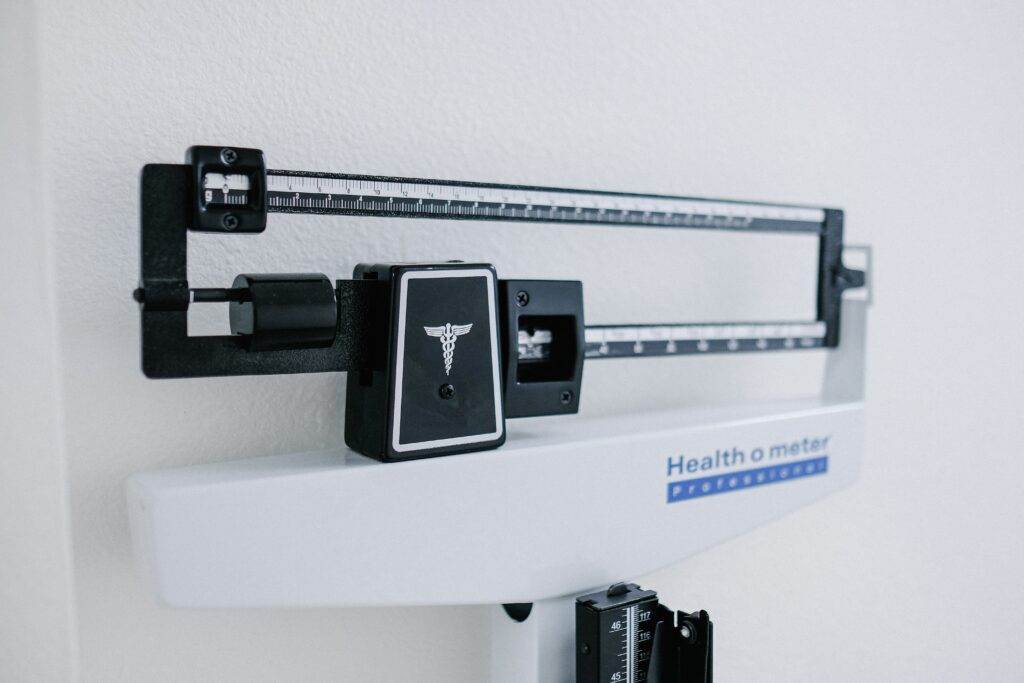
Every year, millions of individuals and families are impacted by eating disorders, yet these conditions remain shrouded in misunderstanding and stigma. National Eating Disorders Awareness Week shines a much-needed spotlight on this critical issue, fostering conversations about mental health, body image, and recovery.
Did you know that approximately 28.8 million Americans will struggle with an eating disorder in their lifetime? That’s nearly 9% of the U.S. population, and it reminds us just how widespread and serious these disorders are. Behind every number is a person with a story—a story of struggle, resilience, and, for many, recovery.
This week isn’t just about raising awareness; it’s about creating a safe and compassionate space for understanding, supporting those in need, and equipping communities with the tools to help. In this post, we’ll explore the complexities of eating disorders, debunk harmful myths, and highlight actionable ways to make a difference. Together, we can challenge the stigma and build a future where no one has to face these battles alone.
Understanding Eating Disorders
Eating disorders are serious mental health conditions that go beyond food and weight. They are complex, multifaceted disorders that often involve distorted thoughts and behaviors related to eating, body image, and self-esteem. These disorders affect people of all ages, genders, and backgrounds, making awareness and understanding crucial.
Common Types of Eating Disorders:
- Anorexia Nervosa: Characterized by extreme food restriction, an intense fear of gaining weight, and a distorted body image. Individuals may experience severe weight loss and significant health complications.
- Bulimia Nervosa: Involves cycles of binge eating followed by compensatory behaviors such as purging, excessive exercise, or fasting. This disorder can take a heavy toll on physical health, particularly the digestive and cardiovascular systems.
- Binge-Eating Disorder: Defined by episodes of consuming large amounts of food in a short period, often accompanied by feelings of loss of control, shame, or guilt. Unlike bulimia, there are no purging behaviors.
Signs and Symptoms to Look Out For:
- Drastic changes in weight or eating habits.
- Preoccupation with food, calories, or body shape.
- Avoiding meals or social situations involving food.
- Physical symptoms such as fatigue, dizziness, or irregular heart rhythms.
- Emotional signs like anxiety, depression, or extreme guilt surrounding food.
The Impact on Individuals:
Eating disorders affect more than just physical health. They can lead to severe emotional and mental health challenges, including anxiety, depression, and feelings of isolation. Physically, they can cause damage to vital organs, hormonal imbalances, and even life-threatening complications if left untreated.
It’s important to remember that eating disorders are not a choice—they are complex illnesses influenced by genetic, psychological, and environmental factors. By recognizing the signs early and responding with compassion and support, we can help individuals begin the path toward healing and recovery.

Myths and Misconceptions
Despite increasing awareness, eating disorders are often misunderstood, perpetuating harmful myths that hinder support and recovery. Let’s address some of the most common misconceptions and uncover the truths behind them.
Myth 1: Eating disorders are a choice.
Reality: Eating disorders are not lifestyle choices or phases—they are serious mental health conditions with complex causes, including genetic, psychological, and environmental factors. Nobody chooses to have an eating disorder, just as nobody chooses to have a physical illness.
Myth 2: Only young women develop eating disorders.
Reality: While eating disorders are often associated with young women, they can affect anyone, regardless of age, gender, race, or socioeconomic background. In fact, a growing number of men and older adults are being diagnosed with eating disorders, challenging this outdated stereotype.
Myth 3: You can tell if someone has an eating disorder by looking at them.
Reality: Eating disorders don’t always result in visible changes in weight or appearance. Many individuals with eating disorders may look “healthy” on the outside while struggling internally. This misconception often delays diagnosis and treatment for those who don’t fit the stereotype.
Myth 4: Eating disorders are all about vanity or wanting to be thin.
Reality: While body image concerns can play a role, eating disorders are often rooted in deeper issues such as trauma, anxiety, depression, or a need for control. Reducing these conditions to vanity oversimplifies the complexities individuals face.
Breaking these myths requires fostering compassion and understanding. By educating ourselves and challenging stereotypes, we can create an environment where individuals feel safe seeking help. Instead of judgment or assumptions, let’s approach eating disorders with empathy and an open mind. Every step toward dispelling these misconceptions is a step toward reducing stigma and empowering those in need to access the support they deserve.
The Importance of Awareness and Support
Education is a powerful tool in the fight against stigma. When we understand eating disorders and their impact, we can move beyond stereotypes and create a culture of empathy and support. By sharing knowledge, we challenge harmful narratives and encourage compassion for those who are struggling.
Reducing Stigma Through Education
Misunderstandings about eating disorders often lead to judgment and isolation for those affected. Education helps to break down these barriers by:
- Teaching the public that eating disorders are complex mental health conditions, not choices.
- Highlighting that they can affect anyone, regardless of age, gender, or background.
- Promoting understanding of the challenges individuals face, both emotionally and physically.
Ways to Offer Support
Support from friends, family, and the community plays a crucial role in recovery. Here’s how we can help:
- Be a safe space: Listen without judgment and avoid making comments about weight or appearance.
- Educate yourself: Learn about eating disorders to better understand what your loved one is going through.
- Encourage open communication: Let them know they can talk to you without fear of being criticized or dismissed.
- Promote healthy attitudes: Model positive behaviors around food, body image, and self-care.
- Provide practical help: Offer assistance with tasks or responsibilities if they’re feeling overwhelmed.
The Importance of Professional Help
While support from loved ones is invaluable, recovery from an eating disorder often requires professional intervention. Therapists, dietitians, and medical professionals are equipped to provide personalized treatment plans that address both the physical and emotional aspects of these disorders. Encouraging someone to seek help isn’t about fixing them—it’s about helping them access the tools and resources they need to heal.
Together, through education, support, and professional care, we can create a world where individuals feel empowered to seek help and embrace recovery without fear or shame.

How to Get Involved
National Eating Disorders Awareness Week is an opportunity for individuals, communities, and organizations to come together and make a difference. From spreading awareness to supporting those affected, there are many ways to get involved and show solidarity.
Events and Campaigns
During this week, numerous organizations host events and initiatives to raise awareness and foster support:
- NEDA Walks: Hosted by the National Eating Disorders Association (NEDA), these events bring communities together to fundraise and spread awareness.
- Educational Webinars and Panels: Experts, advocates, and individuals with lived experiences share their insights to promote understanding and action.
- Social Media Campaigns: Join the conversation by following hashtags like #NEDAwareness and sharing educational posts, personal stories, or resources.
How You Can Make an Impact
There are simple yet meaningful ways to contribute to the cause:
- Share Resources: Post about eating disorder awareness on social media and provide links to helpful websites, helplines, or local events.
- Start Conversations: Encourage open discussions about mental health and body image within your circle of friends and family.
- Volunteer: Get involved with organizations like NEDA or local mental health groups to support their efforts during the week.
- Fundraise: Organize a fundraiser to support research, treatment programs, or advocacy efforts for eating disorder awareness.
Helplines and Support Networks
If you or someone you know is struggling, these organizations provide valuable resources and support:
- National Eating Disorders Association (NEDA): Helpline: 1-800-931-2237 | Text “NEDA” to 741741
- ANAD (National Association of Anorexia Nervosa and Associated Disorders): Free peer support services and mentorship programs.
- Project HEAL: Offers assistance with accessing treatment and resources for those facing financial or insurance barriers.
- Local Resources: Check for eating disorder support groups or treatment centers in your area.
By getting involved, you not only help raise awareness but also contribute to a movement of hope and healing. Every action, no matter how small, plays a role in building a more compassionate and informed world for those impacted by eating disorders.
National Eating Disorders Awareness Week reminds us that behind every statistic is a real person—a friend, family member, or colleague—navigating a challenging journey. By fostering awareness and practicing compassion, we can create a culture that supports recovery and reduces the stigma surrounding eating disorders.
Whether it’s by learning more about these conditions, supporting someone who’s struggling, or sharing resources to spread awareness, your actions can make a profound difference. Together, we have the power to transform lives and inspire hope.
If this post resonated with you, consider sharing it to help spark conversations and extend its reach. Your voice can amplify the message of understanding and acceptance for those who need it most.
To anyone impacted by an eating disorder, know that you are not alone. There is a community ready to stand with you, a network of support to guide you, and a future full of possibility and healing. Let’s stand together in hope, solidarity, and the belief that recovery is always possible.

Leave a Reply
You must be logged in to post a comment.